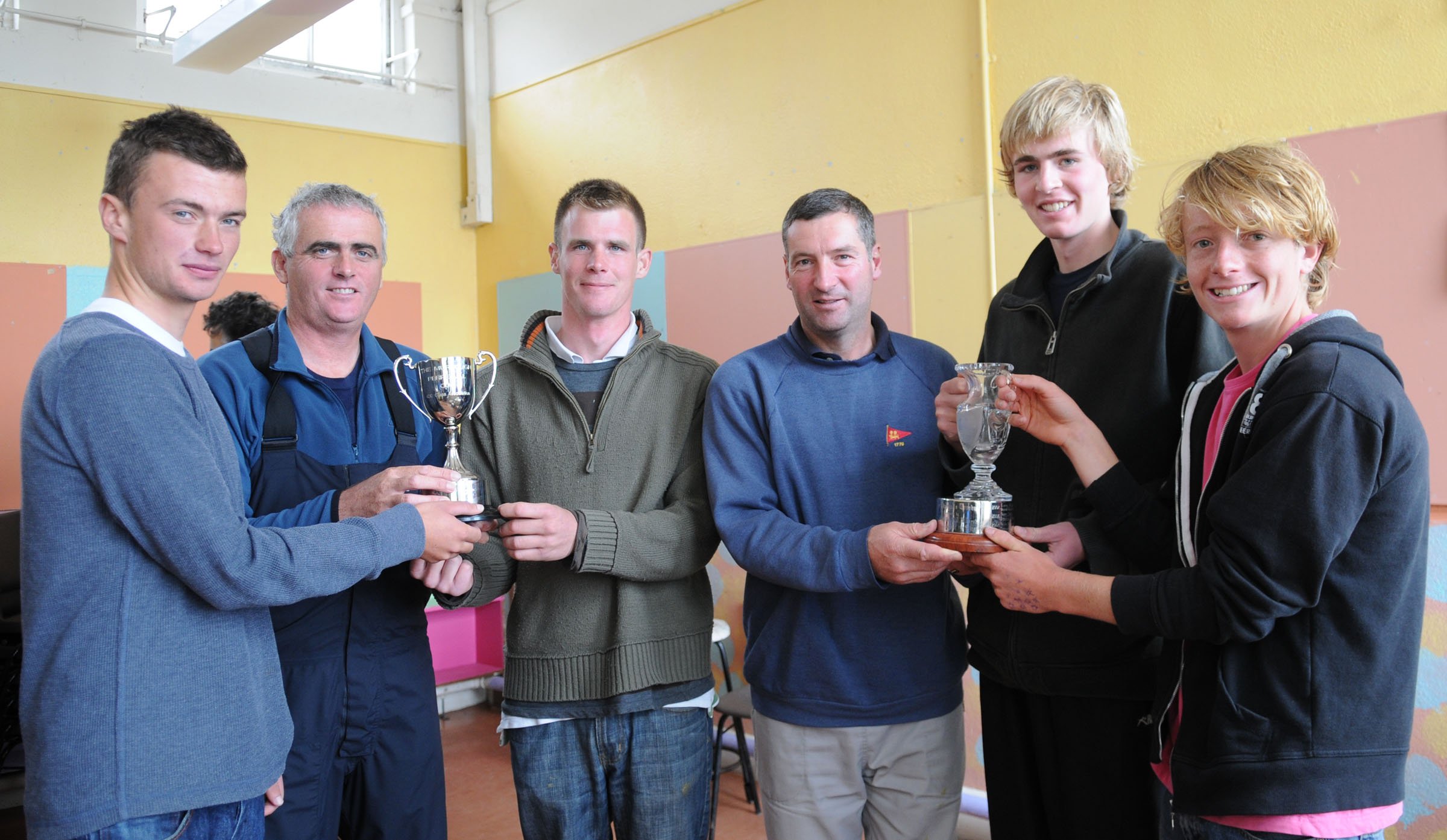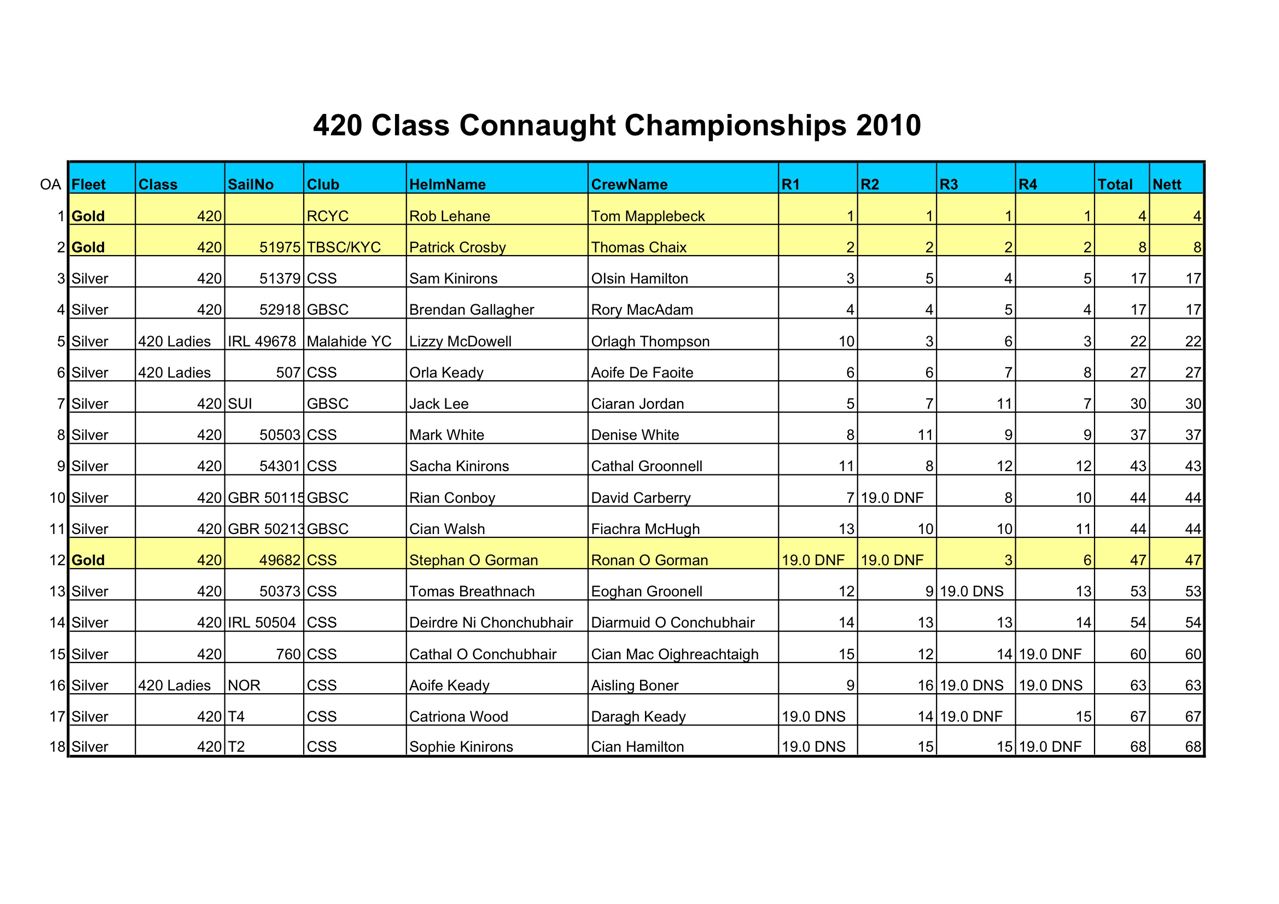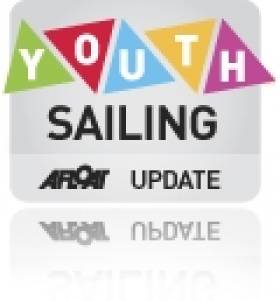Displaying items by tag: Cumann Seoltóireachta An Spidéil
Hannan Trophy Presented to Joint Winners Dave Cahill and Tom McHale of Cumann Seoltóireachta an Spidéil
Two long-standing members of Cumann Seoltóireachta an Spidéil (CSS) have been presented with the annual Hannan trophy for their outstanding services to the Co Galway club.
Dave Cahill and Tom McHale were presented with the trophy by current commodore Eoin Ó Conghaíle in recognition of their “sár obair” to secure two new rigid inflatable boats (RIBs).
Ó Conghaíle said the two RIBS were vital assets to secure safe sailing from An Spidéal in Co Galway for years to come.
Cahill and McHale, both active sailors and past commodore and committee members, managed the new RIB project from commissioning to delivery in 2023.
 2023 Hannan trophy joint winner Dave Cahill with 2022 winner and offshore sailor Cathal Mahon at the Cumann Seoltóireachta an Spidéil winter gathering.
2023 Hannan trophy joint winner Dave Cahill with 2022 winner and offshore sailor Cathal Mahon at the Cumann Seoltóireachta an Spidéil winter gathering.
The John and Stephanie Hannan Award, which was commissioned by Cumann Seoltóireachta an Spidéil (CSS) in 2020, is an annual prize in memory of the late John Hannan.
The presentation was made at the club’s 2023 winter gathering, when the 2022 Hannan trophy winner, offshore sailor Cathal Mahon, was also present to congratulate Cahill and McHale.
Mahon, an award-winning 420 dinghy sailor with Rob Talbot at CSS, is now competing offshore.
Both Mahon (skipper) and Talbot (bow) were part of the Galway Bay youth crew that sailed the Green Dragon to line honours runners-up and second in class zero in the 2022 Round Ireland Yacht Race.
Mahon has just completed the RORC Transatlantic from Lanzarote to Grenada, and is currently preparing for the Caribbean 600 which starts in mid February.
CSS, founded in 2002, has no clubhouse, but was dubbed the "coolest place to sail" by Irish Olympic contestant Sean Waddilove.
Galway Bay Sailing Club Sweeps the Board at Cumann Seoltóireachta an Spidéil Regatta
Galway Bay Sailing Club (GBSC) swept the boards at the annual Cumann Seoltóireachta an Spidéil (CSS) regatta at the weekend.
Conditions proved promising for the event off An Spidéil, Co Galway, with light winds for the Oppie fleet picking up to a westerly force of ten to 12 knots in the afternoon for the mixed fleet.
This allowed race officer Stephen O’Gorman to run three races for both Oppies and the mixed fleet.
 Roisin Mitchell Ward and Killian Mathieu of GBSC, overall winners of the mixed fleet, with Cumann Seoltóireachta an Spidéil (CSS) Commodore Eoin Ó Conghaíle
Roisin Mitchell Ward and Killian Mathieu of GBSC, overall winners of the mixed fleet, with Cumann Seoltóireachta an Spidéil (CSS) Commodore Eoin Ó Conghaíle
A total of nine Oppies competed, with GBSC’s Edward Fitzmaurice coming first, club mates Jake Molloy second, and Rossa Mitchell Ward taking third.
Liam Riggott was first CSS sailor in the Oppie class, and both he and Seán Ó Conghaíle competed in the mixed fleet in the afternoon.
 Rossa Mitchell Ward of GBSC was third in the Oppies at the CSS regatta 2023
Rossa Mitchell Ward of GBSC was third in the Oppies at the CSS regatta 2023
Roisín Mitchell Ward and Kilian Mathieu of GBSC were first overall, sailing a 420, in the mixed fleet, and were closely pressed by Charlie Donald and James Harvey of CSS, who came second overall.
Kate Barry and Eilí McMahon of GBSC, also sailing a 420, were third overall in the mixed fleet.
The first Pico home was sailed by Niamh Kearns and Diarmuid Canavan of CSS, followed by Sarah Donald of CSS (first junior in the Pico). Rory McHale and Sean Ó Conghaíle sailed the first Topaz home.
 Niamh Kearns and Diarmuid Canavan of CSS, first Laser Pico home in the CSS regatta 2023 with commodore Eoin O Conghaíle
Niamh Kearns and Diarmuid Canavan of CSS, first Laser Pico home in the CSS regatta 2023 with commodore Eoin O Conghaíle
 Liam Riggott of CSS, first club Oppie home at the CSS regatta 2023, with commodore Eoin Ó Conghaíle
Liam Riggott of CSS, first club Oppie home at the CSS regatta 2023, with commodore Eoin Ó Conghaíle
 James Harvey and Charlie Donald of CSS who were second 420 and second overall in the mixed fleet at CSS regatta, with commodore Eoin Ó Conghaíle
James Harvey and Charlie Donald of CSS who were second 420 and second overall in the mixed fleet at CSS regatta, with commodore Eoin Ó Conghaíle
 Edward Fitzmaurice of GBSC was first in the Oppies at the CSS regatta 2023
Edward Fitzmaurice of GBSC was first in the Oppies at the CSS regatta 2023
 Jake Molloy of GBSC was second in the Oppies at the CSS regatta 2023
Jake Molloy of GBSC was second in the Oppies at the CSS regatta 2023
Galway City Sailing Club is hosting its junior regatta next Saturday, September 16th.
Cumann Seoltoireachta an Spideil Host 420 Champs
A field of top class visitors and local crews saw former 420 Champion Rob Lehane and crew Tom Mapplebeck, who are currently campaigning a 470 revel in the fresh conditions to take the Connacht title ahead of Patrick Crosbie and crew Thomas Chaix and local father and son team of Stephen & Ronan OGorman.
The silver fleet was hotly contested and CSS Spiddals own up and coming team of Sam Kinirons and Oisin Hamilton took the trophy on a countback from Brendan Gallagher & Rory McAdam of GBSC with a third place overall in the first race.
Racing was cancelled due to strong winds on Saturday and the sailors and supporters enjoyed an evening BBQ hosted by CSS members Carmel & Tiernan OBrien.
4 Races were ran by Race Officer John Leech on Sunday in freshening South Westerlies with at times poor visibility in showers. The fleet and especially the many young 420 crews showed great seamanship in dealing with the testing conditions on this exposed coast, which is no doubt a great encouragement to the 420 Fleet.



Cumann Seoltóireachta An Spidéil

Cumann Seoltóireachta An Spidéil
Providing sailing to the children and adults of the area since 2003. Hosts an Annual CSS Dinghy Regatta
left: Early morning at Spiddal pier
Páirc báid ag Sean Céibh an Spidéil. Seoladh gach deire eachtain agus trathnóna amháin i rith na seachtaine. Failte faoi leith chuig daoine agus atá taithí seol acu. Cursaí sheoil ar fáil i rith an samhradh.
Cumann Seoltóireachta An Spidéil, or CSS, Cois n Tra, Coast Road, Spiddal Village, Co. Galway. Tel: 087 279 1095, email: [email protected]
or
Contact: Billy Keady, Stripe, Furbo, Co. Galway. Tel: 087 263 9308, email: [email protected]
Have we got your club details? Click here to get involved




























































